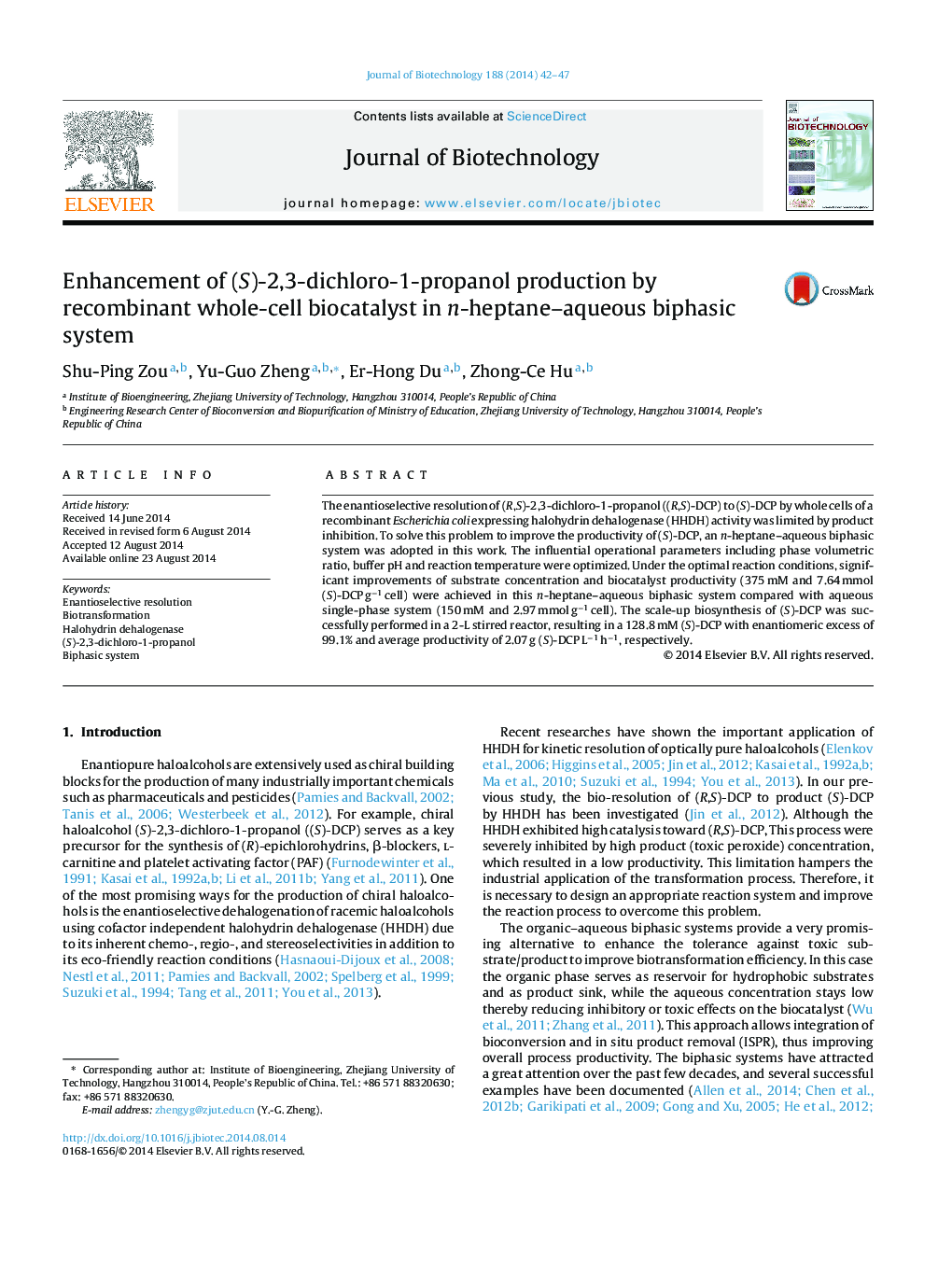| Article ID | Journal | Published Year | Pages | File Type |
|---|---|---|---|---|
| 6491412 | Journal of Biotechnology | 2014 | 6 Pages |
Abstract
The enantioselective resolution of (R,S)-2,3-dichloro-1-propanol ((R,S)-DCP) to (S)-DCP by whole cells of a recombinant Escherichia coli expressing halohydrin dehalogenase (HHDH) activity was limited by product inhibition. To solve this problem to improve the productivity of (S)-DCP, an n-heptane-aqueous biphasic system was adopted in this work. The influential operational parameters including phase volumetric ratio, buffer pH and reaction temperature were optimized. Under the optimal reaction conditions, significant improvements of substrate concentration and biocatalyst productivity (375 mM and 7.64 mmol (S)-DCP gâ1 cell) were achieved in this n-heptane-aqueous biphasic system compared with aqueous single-phase system (150 mM and 2.97 mmol gâ1 cell). The scale-up biosynthesis of (S)-DCP was successfully performed in a 2-L stirred reactor, resulting in a 128.8 mM (S)-DCP with enantiomeric excess of 99.1% and average productivity of 2.07 g (S)-DCP Lâ1 hâ1, respectively.
Related Topics
Physical Sciences and Engineering
Chemical Engineering
Bioengineering
Authors
Shu-Ping Zou, Yu-Guo Zheng, Er-Hong Du, Zhong-Ce Hu,
